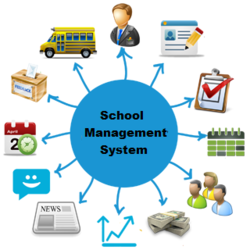
School Controversy Management
Picture a school bustling with activity. Student Withdrawal are engaged, and learning flourishes. But the calm can be shattered by a School Controversy Management issue, sparking heated debates and leaving everyone wondering: Should school leaders step in? The answer, like most things in life, isn’t a simple yes or no.
Here’s why:
School Controversy Management: The Delicate Dance of Maintaining Neutrality
Schools strive to present a balanced and objective view on various topics. However, some issues spark strong emotions and opposing viewpoints:
- Sensitive Topics: Issues like social justice movements, political events, or religious beliefs can be deeply personal and ignite passionate responses from various stakeholders.
- Potential for Disruption: Unveiling controversial topics can lead to heated discussions, misunderstandings, or even protests within the school community.
Silence Isn’t Golden: When Addressing Controversies Becomes Necessary
While maintaining a neutral stance is crucial, some situations demand a response from school leadership.
- Direct Impact on the School Community: If a controversial event directly affects the school community, like a student protest or a community issue with significant local impact, addressing it becomes necessary.
- Promoting Critical Thinking Skills: Schools have a responsibility to equip students with the ability to analyze complex issues, form their own opinions, and engage in respectful dialogue.
YouTube Video related to this topic School Controversy Management
Finding the Right Footing: Strategies for Effective Communication
So, when the time comes to address a controversy, here’s how school leaders can navigate the situation:
- Open Communication is Key: Clearly communicate the school’s stance on neutrality and the importance of respectful dialogue.
- Create a Safe Space for Discussion: Facilitate age-appropriate discussions, providing students with a platform to express their views while encouraging critical thinking and respectful exchange of ideas.
- Focus on Facts and Context: Provide students with factual information and diverse perspectives on the issue. Encourage them to research, analyze, and form their own informed opinions.
Building a Culture of Understanding: Beyond the Immediate Crisis
Addressing controversies shouldn’t be a one-time event. Here’s how to foster a culture of understanding:
- Incorporate Social-Emotional Learning (SEL): Equip students with the skills to manage their emotions, communicate effectively, and engage in respectful dialogue with those who hold differing viewpoints.
- Promote Critical Thinking Skills: Integrate activities that encourage students to analyze information, identify biases, and form well-reasoned arguments.
- Building Community Partnerships: Collaborate with local organizations, community leaders, and experts to provide students with diverse perspectives and foster a sense of connection to the broader community.
The Takeaway: A Learning Opportunity
Addressing controversies effectively offers several benefits:
- Empowering Students: Equipping students with critical thinking skills and fostering a culture of open dialogue empowers them to become informed and engaged citizens.
- Building a Strong School Community: Open communication and addressing sensitive issues head-on strengthens the school community and fosters trust between students, educators, and families.
Remember: Schools play a vital role in shaping future citizens. By acknowledging the complexities of controversial issues, fostering open communication, and equipping students with the necessary skills to navigate them effectively, school leaders can ensure a safe and stimulating learning environment where students can develop into well-rounded individuals prepared to tackle the challenges of the real world.






One thought on “School Controversy Management: When Leaders Should Act.”